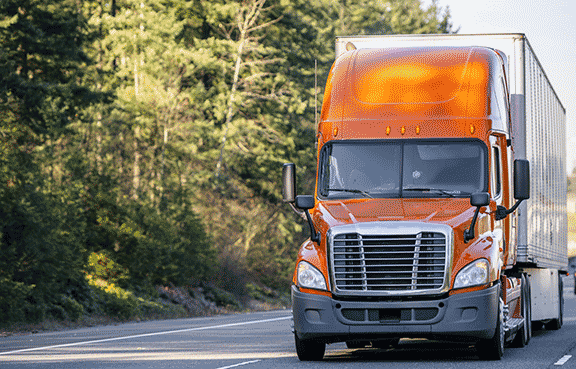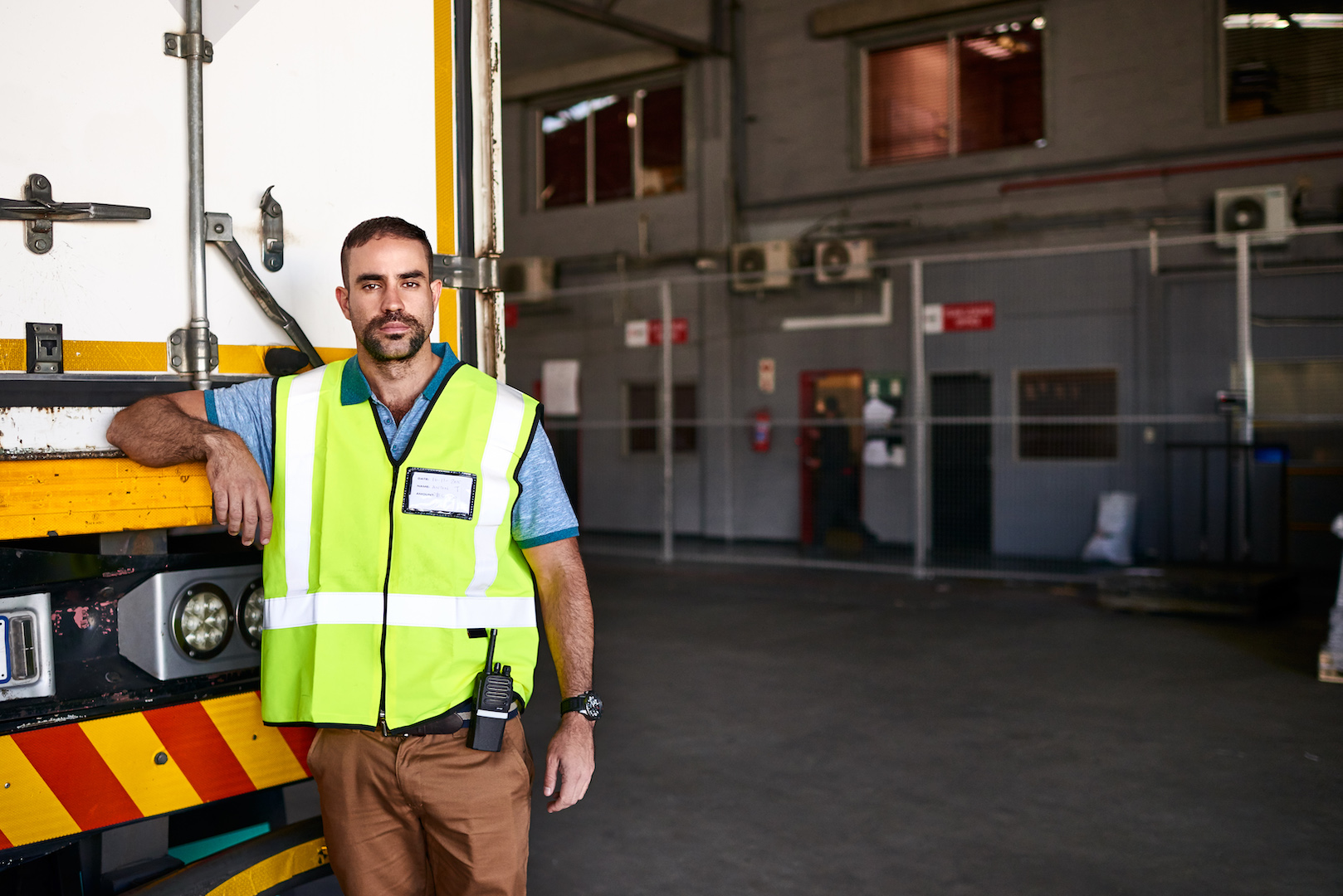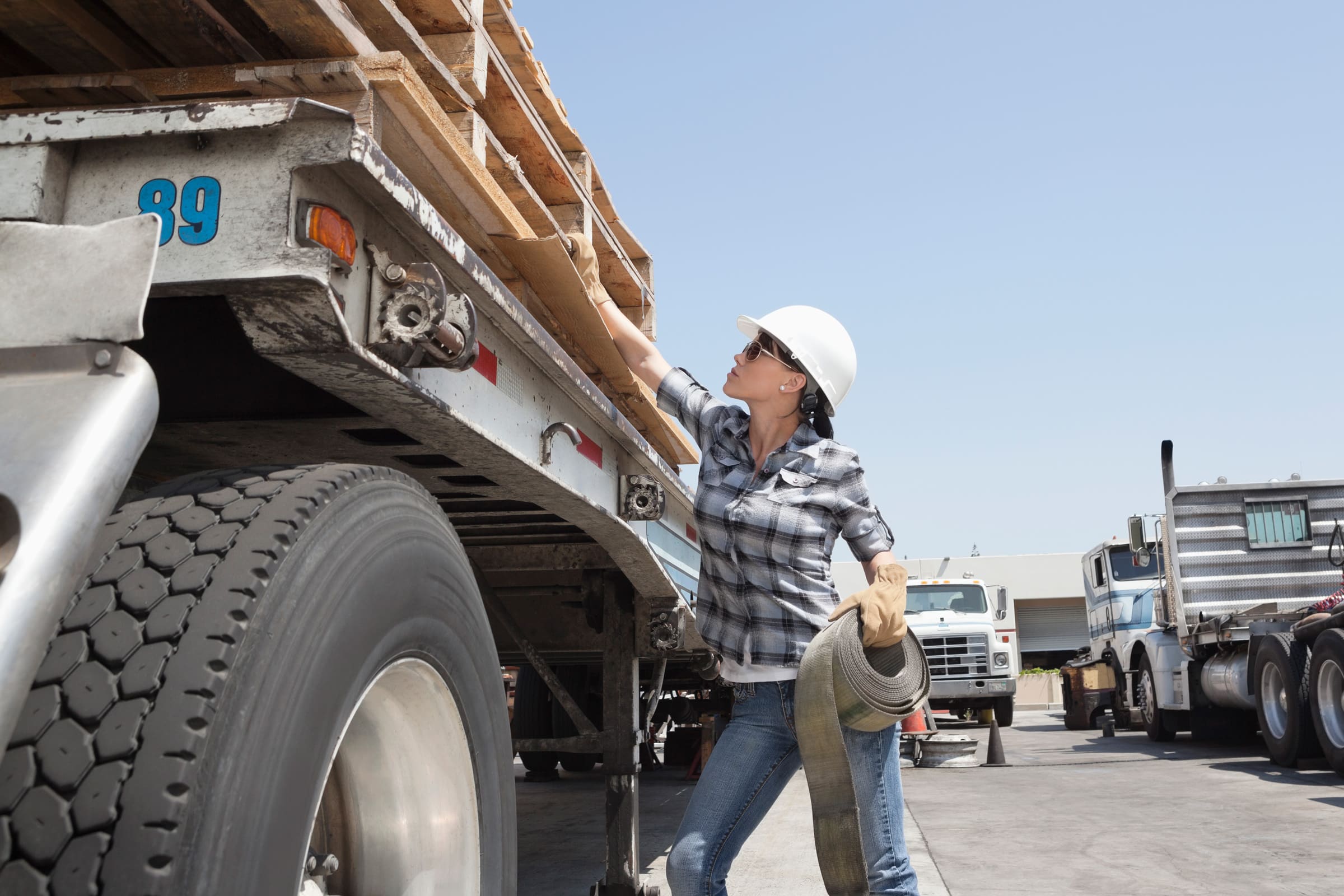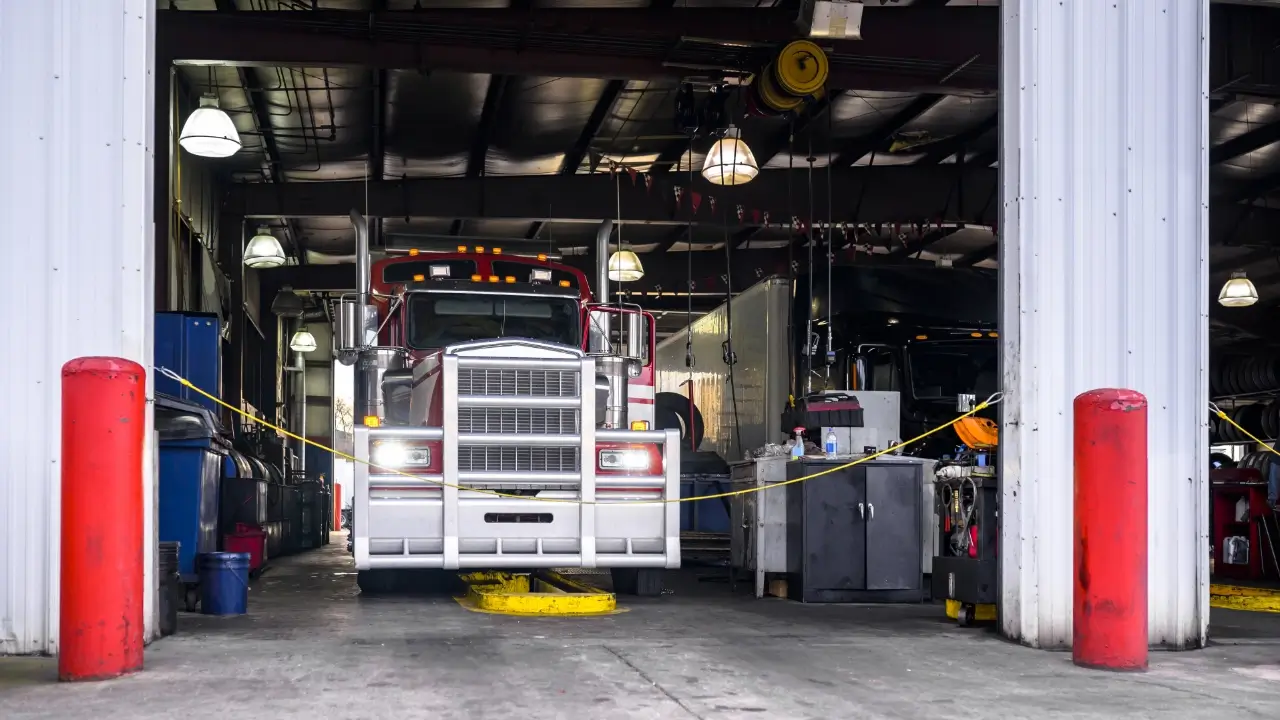Dry Van Trailer Safety

Working on and around dry van trailers can expose a driver to potential injuries, which could be costly to one’s livelihood and lifestyle. Read the information below about dry van trailer safety and the recommended injury prevention techniques, and then ask yourself how you can better protect yourself from harm.
RECOGNIZE THE HAZARDS

ENVIRONMENT
The weather can create hazards around the truck. For instance, ice, snow, rain, and mud make surfaces slippery and can cause your feet to lose traction. These conditions can cause a driver to fall off the tractor, trip in a pothole, or slip and fall. Likewise, wind gusts can catch trailer doors and cause injuries.

EQUIPMENT
Cargo can shift while enroute and fall on top of an unsuspecting driver when the driver is opening the trailer doors. Likewise, performing tasks like cranking the dollies, pulling the fifth wheel pin, and sliding the tandems often lead to shoulder and back injuries.
PERSONAL BEHAVIORS
Hurrying and ignoring safety procedures are key factors in work-related injuries. Drivers who fail to perform a thorough pre-trip inspection or do not utilize PPE increase the risk of personal injury.
KNOW THE DEFENSE

CONDUCT PROPER VEHICLE INSPECTIONS

USE THREE POINTS OF CONTACT
Always face the equipment when climbing on or off and use three points of contact, meaning both hands and one foot or both feet and one hand are always in contact with the equipment.

UTILIZE PPE
Always wear gloves to protect your hands when handling freight or performing tasks, like sliding the trailer tandems. Wear proper footwear with slip-resistant soles and steel toes, and ensure the footwear is made of puncture-resistant material. Utilize door straps to protect yourself from shifted or fallen cargo.

FOLLOW ESTABLISHED PROCEDURES
Stretch your back, shoulders, arms, and legs before performing tasks like uncoupling the trailer, cranking the dollies, sliding the tandems, or opening the trailer doors. Use the proper technique to avoid muscle strains and reduce the risk of cuts and abrasions. Also, do not inhibit your range of motion when performing these tasks. If parked too close to another truck or object, reposition your truck to give yourself more room to maneuver.
BE ATTENTIVE TO YOUR SURROUNDINGS
When working on or around the truck, be mindful of slip, trip, and fall hazards such as potholes, ice patches, and puddles. If working in the dark or in low-lit areas, use a flashlight. Remember to slow down, and do not hurry.
The information in this article is provided as a courtesy of Great West Casualty Company and is part of the Value-Driven® Company program. Value-Driven Company was created to help educate and inform insureds so they can make better decisions, build a culture that values safety, and manage risk more effectively. To see what additional resources Great West Casualty Company can provide for its insureds, please contact your safety representative, or click below to find an agent.
© Great West Casualty Company 2023. The material in this publication is the property of Great West Casualty Company unless otherwise noted and may not be reproduced without its written consent by any person other than a current insured of Great West Casualty Company for business purposes. Insured should attribute use as follows: “© Great West Casualty Company 2023. Used with permission by Great West Casualty Company.”
This material is intended to be a broad overview of the subject matter and is provided for informational purposes only. Great West Casualty Company does not provide legal advice to its insureds, nor does it advise insureds on employment-related issues. Therefore, the subject matter is not intended to serve as legal or employment advice for any issue(s) that may arise in the operations of its insureds. Legal advice should always be sought from the insured’s legal counsel. Great West Casualty Company shall have neither liability nor responsibility to any person or entity with respect to any loss, action, or inaction alleged to be caused directly or indirectly as a result of the information contained herein.




